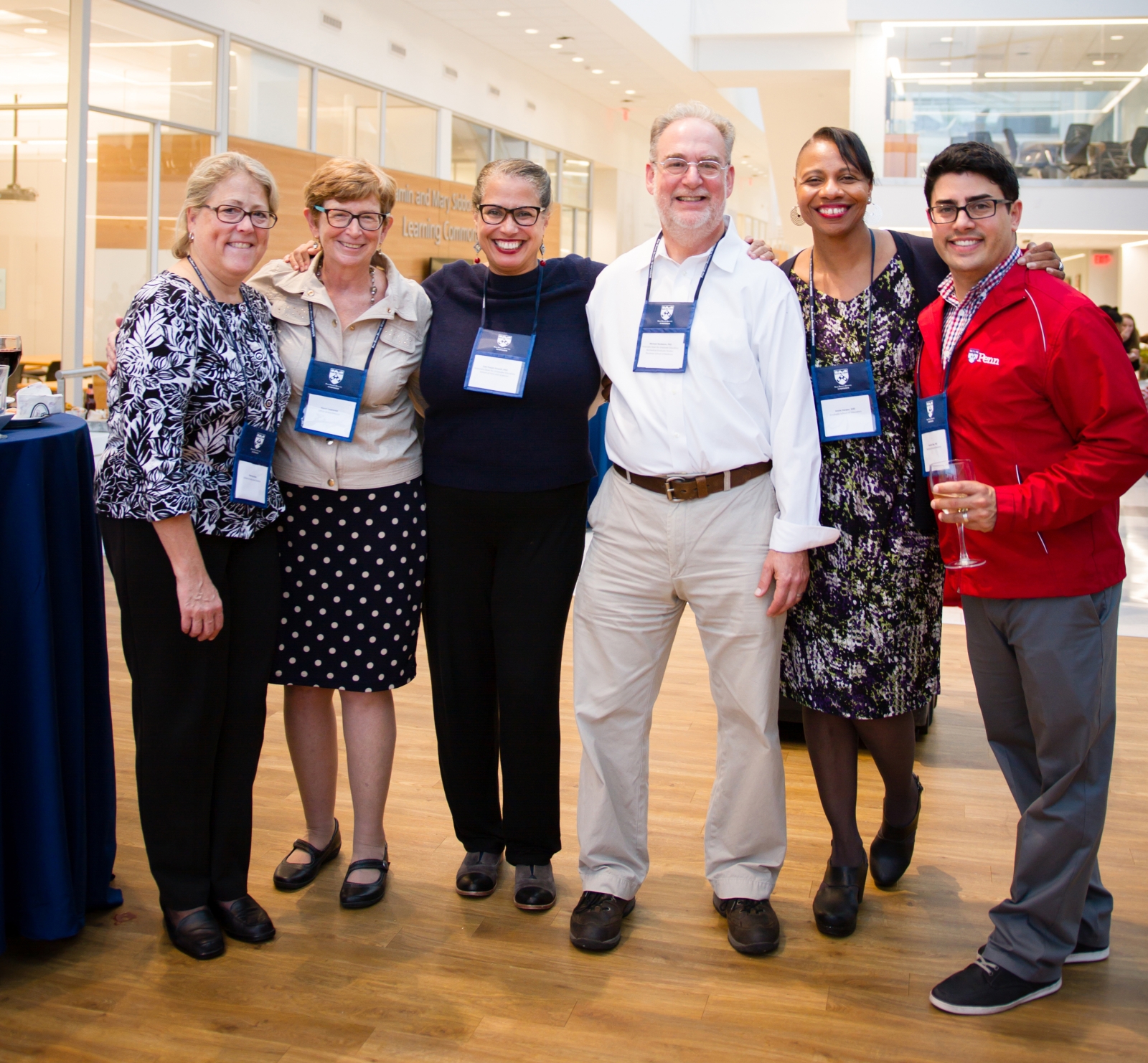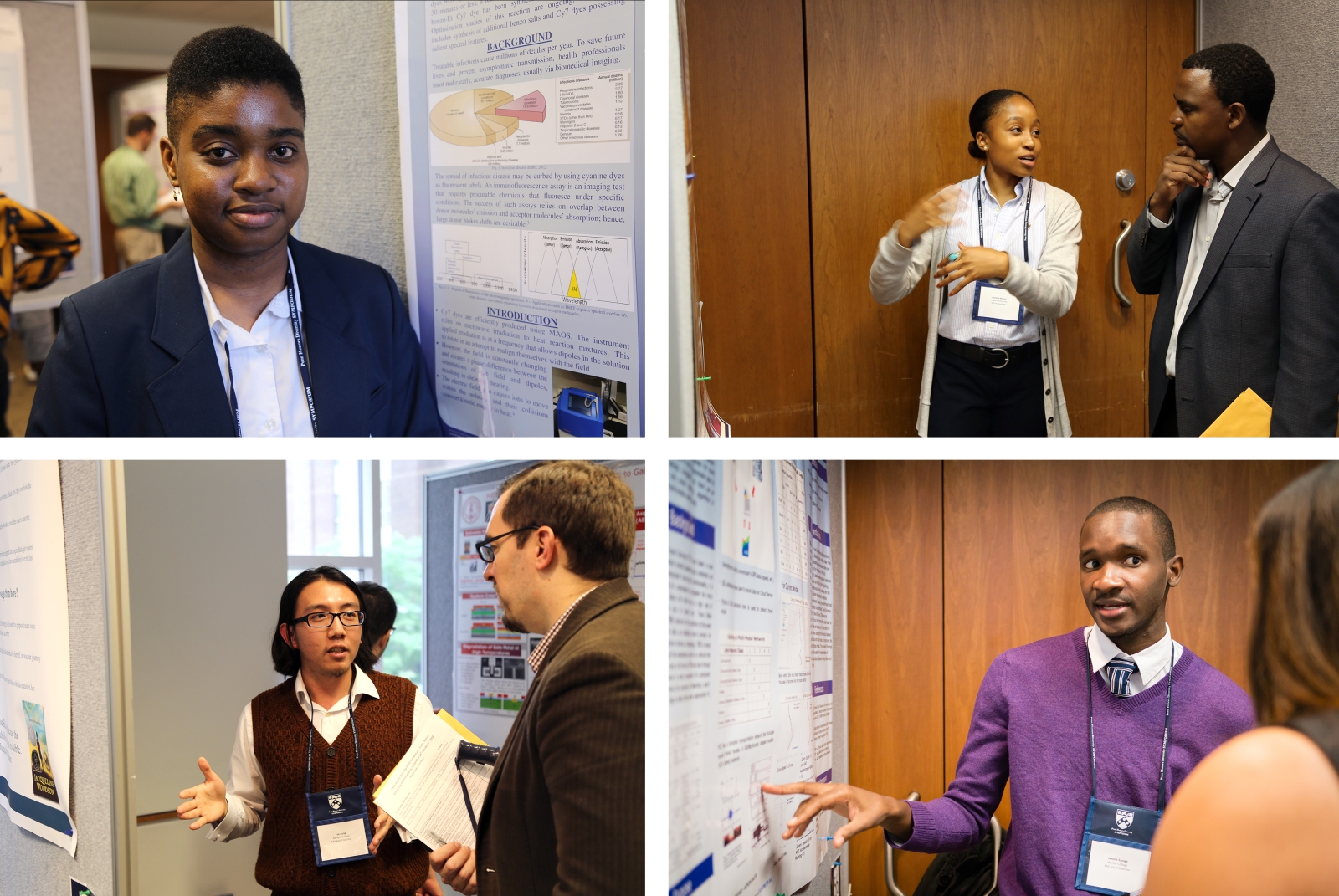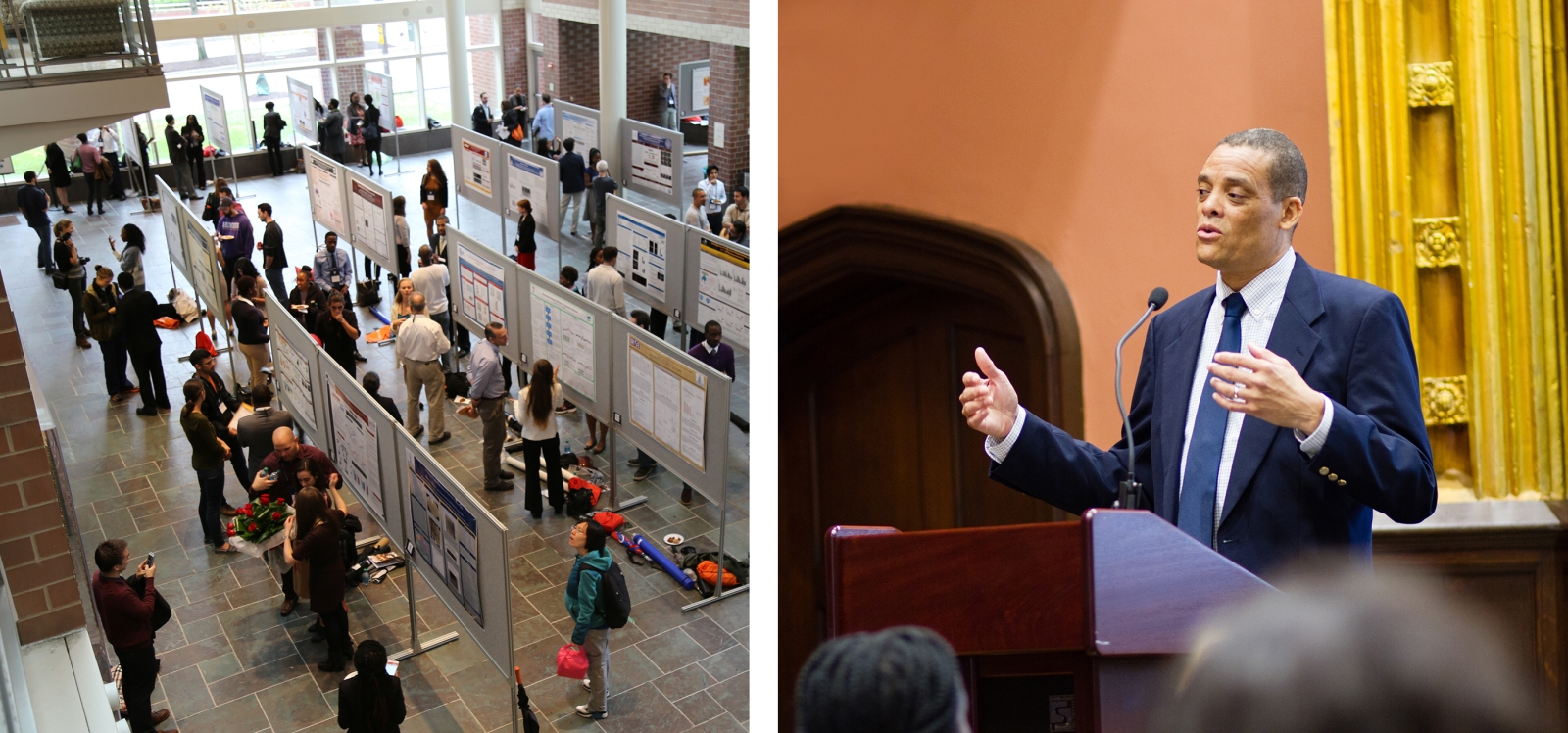This past September Penn hosted almost 100 undergraduate researchers from universities in the Middle States Region to present their research at the 2016 Penn Honors Diversity Symposium. The goal of the event was to provide an opportunity for undergraduates, particularly those from underrepresented groups, to learn about the value of a Ph.D.-level education. It included panel discussions about life in graduate school, application and admission to Penn graduate programs, and career opportunities provided by a Ph.D. The event was a collaboration between Penn Arts and Sciences, the Annenberg School of Communication, the School of Design, the Graduate School of Education, the School of Engineering and Applied Sciences, the Perelman School of Medicine, the School of Nursing, and the School of Social Policy and Practice.

Members of the Penn Honors Diversity Symposium steering committee (left to right): Patricia Rea; Karen Lawrence, Associate Director for Education, Office of the Provost; Eve Troutt Powell; Michael P. Nusbaum; Jessie Harper, Assitant Dean for Faculty Affairs and Diversity, Graduate School of Education; and Arnaldo Diaz.
The co-organizers of the event were Eve Troutt Powell, Christopher H. Browne Distinguished Professor of History and Africana Studies and Associate Dean for Graduate Studies in Penn Arts and Sciences, and Michael Nusbaum, professor of neuroscience, Associate Dean for Graduate Education, and director of Biomedical Graduate Studies in the Perelman School of Medicine. Keynote speakers included Larry Gladney, Edmund J. and Louise W. Kahn Professor for Faculty Excellence in Physics and Astronomy and Associate Dean for Natural Sciences in Penn Arts and Sciences, and Marybeth Gasman, a professor of higher education in the Graduate School of Education and director of the Penn Center for Minority-Serving Institutions.
"I think it's really important that the students we brought in saw that if you come to Penn you work with people with very different educational and cultural experiences. We are not only bringing and admitting underrepresented minorities, but also making it a place that's friendly," says Troutt Powell.
Nusbam says there were no shortages of gifted undergraduates to choose from. "Our target was about a hundred students, and we met that target,” he says. “We specifically limited our reach to basically within a four-hour drive of Philadelphia, but because this was our first symposium of this kind, the goal was not to make it a massive event, but to make it a manageable size so that it stayed accessible to the students and gave us the opportunity to actually interact on a one-to-one basis."
Arnaldo Diaz, an adjunct assistant professor of pharmacology and the Biomedical Graduate Studies Assistant Dean for Research Training in the Perelman School of Medicine, says the symposium speaks to him on a personal level. "As a person of color, I can relate to the students," he says. "Penn has been really supportive in my career, so they see it is something that they can also do. We have had an increase in diversity in the past three years of between 26 percent and 30 percent a year, when nationwide it is only around 10 percent. I think that's the goal of the University as a whole, to keep working and to reach out to those students that we haven't reached out to in the past."

Clockwise from top left: Jahnn Drigo of Morgan State University presented her research “Organic synthesis of fluorescent cyanine dyes and their precursors”; Jasmine Wilson of Howard University discusses her research with Associate Professor Daniel Gillion from the Dept. of Politcal Science; Toe Aung of Albright College presents his research on evolutionary psychology; Lerone Savage from Hunter College (CUNY) discusses his research on travel mode detection in New York City.
Jasmine Wilson, a senior English major at Howard University, presented a research poster dealing with "Curious Black Race Reversal between Black and White Women Characters in Comics." She says of her experience at the symposium, "It's been a wonderful to feel like you have a place to be creative and explore and to rid yourself of any imposter syndrome. It's a place where you're able to assert your ideas in a way that speaks to the excitement that you feel when you're by yourself, and to share that excitement with others."
Albright College’s Toe Aung, who grew up in Burma, won a lottery program to come to the U.S. and study. Aung, who studies evolutionary psychology and how brain activities correlate with people's religious beliefs, says one of the most important parts of his symposium experience was meeting the Penn faculty and other graduate students. "If there is one thing I learned today it is perseverance, that you keep going.,” he says. “You will face difficulties but there are people who are willing to support you."
Patricia Rea, an associate director for Admissions who was instrumental in organizing the event, says giving all students an equal shot is crucial. "I just heard a good quote the other day from Supreme Court Justice Sonia Sotomayor. She said, 'We're never going to be equal until we equalize our educational opportunities,' and it's so true," says Rea. "A lot of these kids have not had the same opportunities that their counterparts have had. We want them to know that we are here for them and we want them to come to Penn and that they can make it."

Penn Honors Diversity Symposium Poster Exhibit; Professor Larry Gladney delivers a symposium keynote address.


